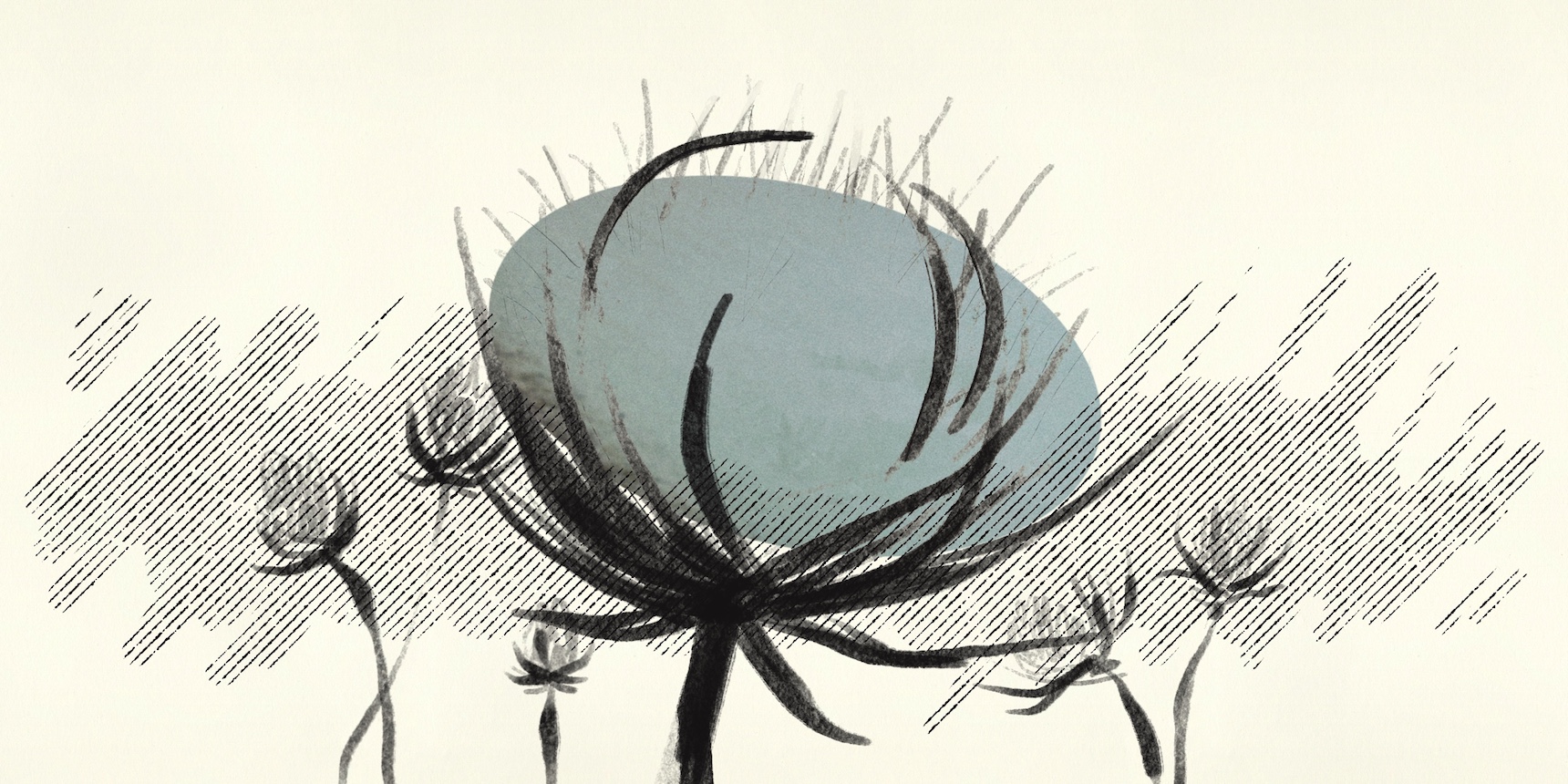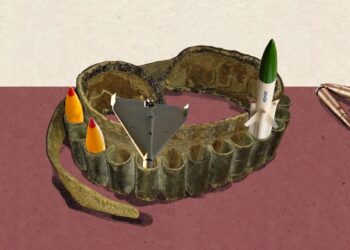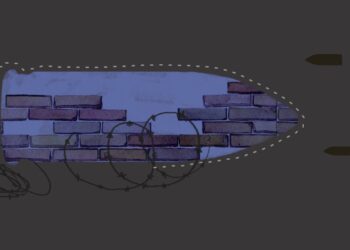
Hard power is as intrinsic to political society as politics itself. While in modern times we qualify state behavior through a fusion of hard and soft power, the traditional canon of international relations has been defined by hard power. In this context, long before contemporary nation-states emerged, hard power defined both domestic politics and relations among states. There is a long body of literature that relates hard power variables to theories of state-formation. Nascent societies, as they engage in state-building, are compelled to establish certain levels of bureaucracy and forms of institutions in order to safeguard their community from external threats. By force or willingly, certain social forces that come to dominate the power corridors of state institutes assume the basic tenets of hard power. Moreover, a kind of social agreement, or a social contract, is presumed to exist. Characteristics of hard power were formulated primarily for defensive purposes and to serve the interests of the ruling elites.
While political communities proceeded to evolve, they did not yet have a strong sense of identity throughout the political systems of feudalism and kingships. In this context, as ideational factors shaping notions of power were yet not fully developed, these communities relied on the precepts of hard power to address their security needs. Political communities that were not able to develop sufficient hard power capabilities simply did not survive. In other words, the need for the preservation of the state and the need to protect society, that is, the ability to ascertain sufficient hard power capabilities, led to the emergence of states as understood in modern times. That being said, the prehistory of the concept of hard power is as ancient as the concept of the state itself.
In the majority of literature on power, the underlying significance of hard components remains fundamental. Paul Kennedy in the classical realist work, The Rise and Fall of the Great Powers, argued that a country’s greatness is a function of its military prowess. Its economic strength, in turn, affects its military prowess. At the most basic level, a state’s access to material resources and its ability to wage war qualify the minimal attributes of hard power. To enhance scholarly understandings of power, and to qualify conceptions of power outside of hard power attributes, Joseph Nye formulated the concept of soft power. Since basic attributes, such as brute force and military capabilities, were assumed as a given, all forms of power were assumed to be defined by hard power. Simply put, state power was automatically equated with hard power. Nye’s conceptualization was not a repudiation of hard power, but the opposite: soft power complimented hard power. In short, hard power is defined as the capacity to get what you want through the coercive use of economic power and the application of military force. To borrow from Carl von Calusewitz’s adage, “War is the continuation of politics by other means.”
Prior to the advent of the scientific study of international relations, analysis of international politics was defined by studying the balance of power between nations, alliance structures, types of military force, population size, and economic capability. Accordingly, we have come to quantify and qualify hard power based on variables that measure sets of material capabilities and resources. Thus, while soft power attributes remain important in understanding a state’s power parity, the fundamental variables that measure hard power continue to remain of extreme relevance. The quantification of tangible resources, application of statistical methods, and utilization of cutting-edge analytical techniques continue to enhance our study and understanding of hard power. But the study of hard power is not an exact science, and all the quantification and methodological techniques utilized in the study of international relations and conflict, for example, do not always account for developments in war. Europe, for example, was shocked by Japan’s 1905 victory over the Russian Empire. By all measures of hard power, St. Petersburg was superior in all regards, a great power, and a member of the Concert of Europe. How did this great power, whose hard power capabilities, when quantified and measured against Japan, displayed profoundly superior, be defeated so handedly? How did the United States, whose hard power capabilities supersede that of any state in the world, lose the war in Vietnam? The historical examples are quite hefty, suggesting that anomalies exist in our study of hard power and outcomes in war.
With the influence and rise of international organizations (IOs), such as the United Nations, the World Bank, International Monetary Fund, etc., along with the proliferation and codification of international and humanitarian law, there have been claims that the relevance of hard power has diminished. As current developments show, such is not the case, and more so, the importance of hard power has not only not decreased, but rather, it has undergone a revival. With the war in Ukraine, future fighting in Taiwan, or any conflict involving a powerful state, the dominant factors will continuously be defined by hard power. No amount of international legal principles, involvement of IOs, or attributes of soft power, will determine the outcomes of such conflicts. As an axiom of history, and the perpetual nature of hegemonic actors, hard power will remain the defining principle.
The paradigm of realism and all of its sub theories are directly related to the idea of hard power. Namely, the most dominant medium through which precepts of hard power are studied and quantified in international relations remains the realist school of thought.
Generally speaking, the paradigm of realism, due to its over-valuation of hard power, has a static and historical understanding of state behavior. Meaning, the paradigm assumes that states have always behaved the same way, regardless of the historical period, and all things being equal, state behavior has been defined by hard power. From antiquity to the present and even into the future, all processes are considered to be similar and have a dominant principle: the desire for power is a fundamental and systemic imperative of states. Realism deduces that the international system is anarchic (there is no governing authority in the international system), that states operate in a self-help system, that it is in the rational interest of every state to pursue more power, and there is a security dilemma because each state is attempting to survive in an anarchic system. Wars, therefore, happen and will continue to happen because the pursuit of power and the paradox of the security dilemma defines the behavior of states. With such being the case, it becomes quite obvious why the concept of hard power remains the dominant precept in understanding state interests and the pursuit of such interests. The more hard power a state has, the assumption goes, the higher probability the state has of being self-reliant and surviving in the international system.
But hard power has its limits, and it is not always the best measure of state capability, and to assume outcomes in interstate relations can be determined and predicted by primarily relying on hard power metrics is quite misleading. Didn’t the collapse of the USSR demonstrate that a singular obsession with hard power cannot be the essence of a strong state? The Soviets, fixated on hard power, spent about 30% of their GDP on military and defense, building one of the largest armies in the world and a nuclear arsenal that, according to some sources, can destroy the world many times over. Yet all of this hard power did not lead to the survival and strengthening of this state, but rather, its decay.
What we have learned in the current world system is that hard power works as a defensive concept, but when it becomes utilized as an offensive phenomenon, its results become counterproductive for the given state. War as a means of achieving political ends no longer works in the modern age. Societies accept, understand, and can justify defensive wars. Anything outside of this, social backlash and domestic turmoil become serious concerns. The U.S. public attitude towards the wars in Iraq, for example, or French attitudes towards the war in Algeria, were both highly negative not only in these respective countries, but also around the world. In this context, it is no wonder that the decision to withdraw American troops from Afghanistan was extensively supported by American society. To this end, wars that are not of an apparent defensive nature remain inherently unpopular, further suggesting that a singular concentration on hard power no longer works in the current world.
In applying conceptualizations of hard power to small states, there are two main strands of thought that remain quite instructive. And when applied to Armenia, the implications are implicit in the failure of not having developed constructive hard power capabilities in the last two decades.
First, because hard power is an essential factor in the development of the state, it is crucial to understand the extent to which Armenia developed its hard power capabilities as a nascent state after 1991, and the extent to which sustainable hard power capabilities defined state-building for Armenia. Namely, did Armenia develop sufficient hard power capabilities to become a self-reliant actor, or did it abdicate the development of hard power capabilities in favor of becoming dependent on a greater power? If we follow the extant literature and concede that state-formation and development will be inherently limited for states that do not develop sufficient hard power capabilities, can we then concede that Armenia did not properly engage in state-building because it abdicated its responsibility of developing robust hard power capabilities? If state survival, in an anarchic system, is defined by establishing an equitable power parity, what does that say about states that refrained from establishing such a parity and simply relied on a greater power to provide for its security? In essence, did Armenia abdicate its responsibility of building a state when it abdicated its responsibility of developing hard power capabilities by outsourcing its security to Russia?
Secondly, attainment of hard power capacity must be defined by pragmatic imperatives, cogent priorities, and feasible and accurate objectives. Reliance on ideational, unrealistic, or historical claims of glory, such as “former greatness,” or re-establishment of empire, are congenitally conducive to failure. Thus, the imperial Algerian war led to overstrain of power and the fall of the Fourth Republic in France. As well, the Afghan invasion was one of the reasons for the Soviet collapse. The historical examples are endless. But how does this pertain to small states? How can we understand the lack of cogent priorities, or feasible and accurate objectives by small states that proceed to develop and enhance their hard power capabilities? Are such states seeking to become strong states to secure survival, longevity, and protection of its people, or are such states driven by the self-serving goals and objectives of its elites? In the 20 years that Azerbaijan spent in enhancing its hard power capabilities, did it do so to secure the survival of the state and the quality of living of its citizens, or was this primarily an exercise in strengthening the Aliyev regime? In the 20 years that Armenia failed to enhance its hard power capabilities, did it do so because it chose to allocate its limited resources, through corruption and embezzlement, to strengthening the oligarchic elite, or was it misled in thinking that deficiencies in hard power capacity can be mitigated by other factors? In this context, hard power, in of itself, is not an objective or a goal, but rather, a means to an end. What has been the end for Armenia and Azerbaijan: regime survival of its corrupt political elite, or the strengthening of the state? Baku believes the two are intertwined, while Armenia learned that such is not the case.
Magazine Issue N26
Hard Power
After Armenia’s heavy defeat in the 2020 Artsakh War, the country continues to be in a very precarious security environment. Hopes for a peaceful settlement with Azerbaijan have been dashed by Baku’s ongoing aggressive behavior and hybrid warfare tactics. Baku has been using its military advantage to increase pressure on both Armenia and Artsakh and under these circumstances, Armenia’s hard power toolbox must be strengthened to address the ongoing security challenges.
This month’s magazine issue entitled “Hard Power” features articles on the concept of hard power, the necessity to create territorial defense forces, reforms and professionalization of Armenia’s Armed Forces, Armenia’s quest to procure arms and the role of women in the military.
Mothers and Soldiers: A Woman’s Place in Armenian Defense
With many Armenians sensing that their country is facing an existential threat from its neighbors, more and more women are looking for ways to defend their country, beyond motherhood, writes Karena Avedissian.
Read moreArmenia’s Quest to Procure Arms
Since the 2020 Artsakh War, Armenia has faced an uphill battle of recovering and upgrading its arsenal. The latest Azerbaijani invasion in September 2022, made the complexities of arms procurement, and the endeavor of doing so independent of Russia, central to Armenia’s strategy.
Read moreBuilding Armenian Territorial Defense Forces
Attempts are being made to carry out military reforms as well as to form a capable Territorial Defense Force in Armenia, but these processes have been progressing slowly, writes defense analyst Leonid Nersisyan.
Read more




